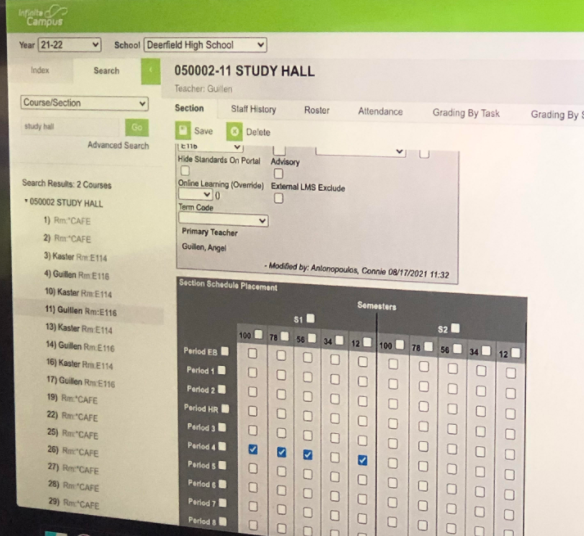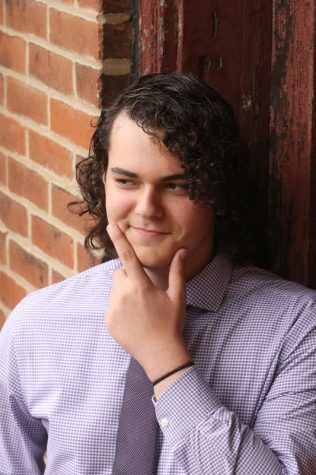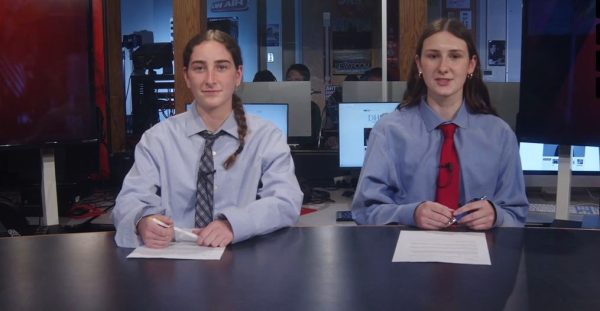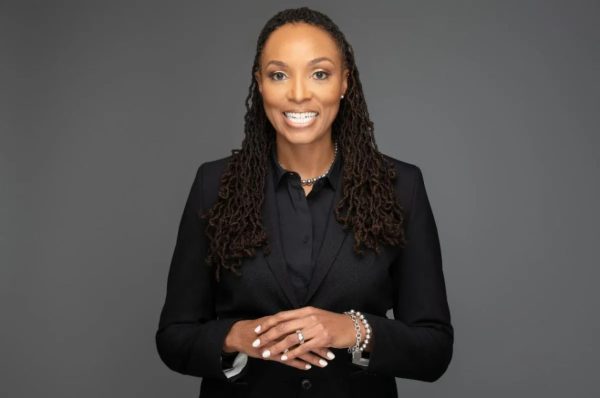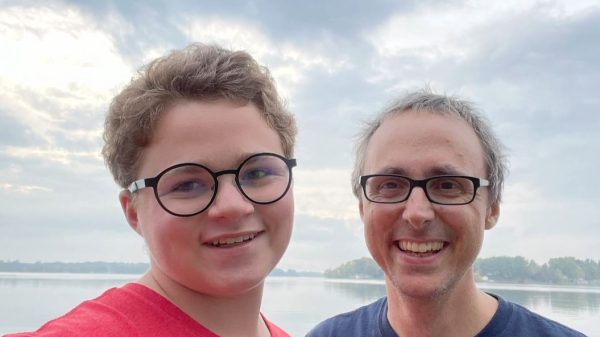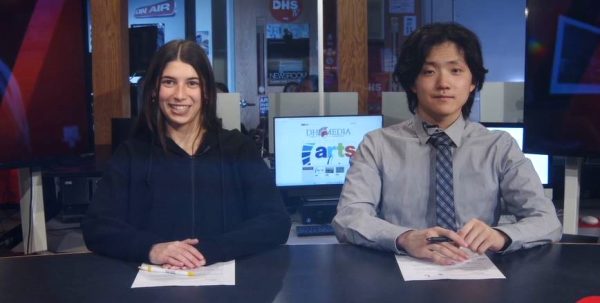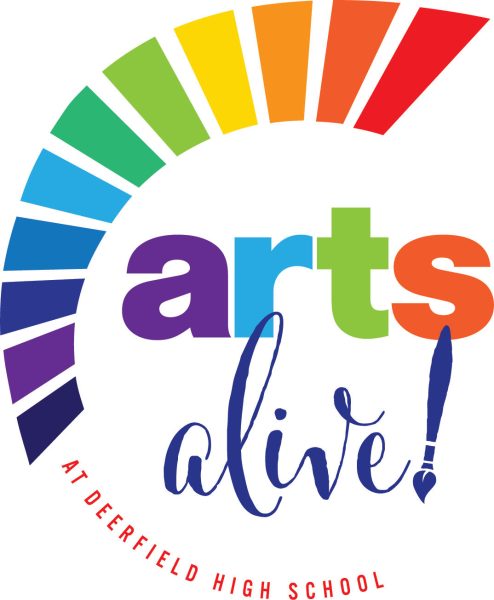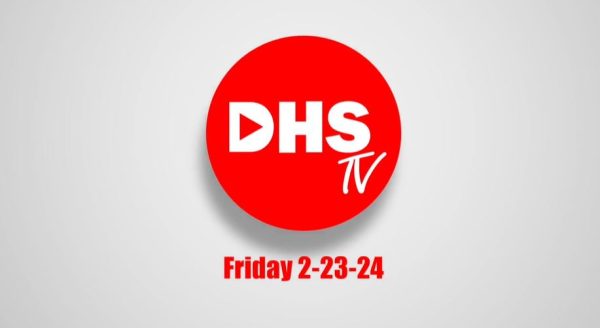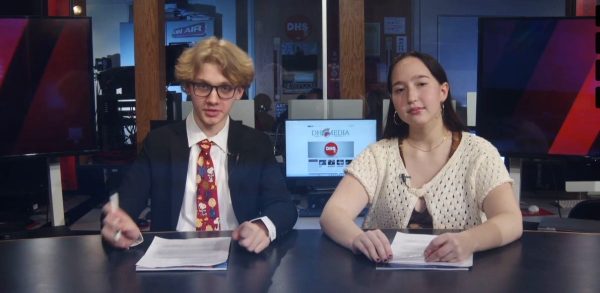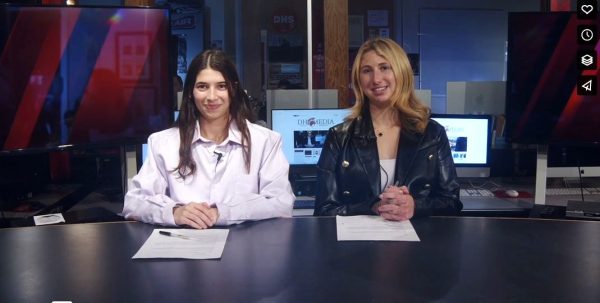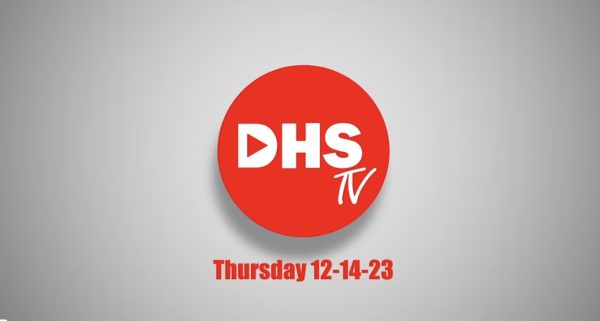“I Feel So Contained,” A Junior Says: The Story Behind Study Halls
October 7, 2021
On Monday, March 29, 2021, Deerfield High School students opened their emails to an unexpected development. With many finally returning to in-person learning, students felt that school was returning to normalcy at last. Instead, they learned that the free period, once thought a permanent feature of DHS, would not be reinstated for the 2021-2022 school year. In its place, the “Study Hall” would appear on their schedules. Sure enough, it did; this reporter’s schedule features one during his 3rd period.
To answer the question of “Why?,” Dr. Bruce Law, District 113 superintendent, offered two main reasons for the change. The immediate one, and the one that demanded action, was the pandemic. “That is, when students are on campus, we need to know where they are in the event that there is a confirmed case,” he said, “We have to determine who their close contacts are so that contact tracing can be done. The only way to do that is if students are assigned to a [specific] place every period.” Yet, Dr. Law acknowledged that study halls were not, in actuality, the only way to accomplish this. For example, he explained that a system wherein students would have a fixed set of permitted common areas they could visit during their off-lab such as the ARC, the Makerspace, or the courtyard would work as long as students scanned their ID card when they entered. He also recognized that students may reasonably feel uncomfortable because of security requirements. “It must feel odd to have this ‘tracking’ mechanism, but it’s to ensure that we’re able to keep students safe,” Law assured.
Maintaining safety during the pandemic is undoubtedly a valid purpose, yet, hopefully, it will not be necessary forever. Nevertheless, the superintendent was clear that, although study halls may not be permanent, free periods would definitely not return. Besides what Dr. Law referred to as “the COVID reason,” he claimed that free periods were an abrogation of the district’s responsibility “in loco parentis,” or to maintain the standard of care that schools have to provide. In order to do that, Dr. Law held, “We need to know where students are.”
When implemented, the change was not seamless. Though students had been allowed to go to any common area in the past, they were now assigned to a specific room such as E114 or E116. They were—upon signing out—allowed to visit locations like the ARC or the testing center, or meet with a teacher, and many students have since taken advantage of these opportunities. In most cases, these room assignments caused no problems. However, in the first days of school, a glaring miscommunication surfaced when one of these rooms, the library, overflowed. The reason, to say the least, is complicated. Dr. Lilly Brandt, Assistant Principal at DHS and “master scheduler” in the building, explained that the school had been using the library for students who were not actually scheduled to have a study hall. This seems self-contradictory; after all, since free periods had been entirely replaced, it should have been impossible to have a study hall. The explanation for this paradox lies in the limitations of the Infinite Campus scheduling software to organize the study halls for students during their lab periods. “Science lab days show up [in the software] as two full periods on a student’s schedule, but in reality they only meet for a sliver of that next period,” she explained, “Hence, the software does not allow study halls to be scheduled on actual science labs day because, technically, that is not a free period and the software cannot ‘double schedule’ classes.” The solution was to send students to the library after this “sliver” of the lab period was complete, where they could check in and have their attendance recorded manually. At first, this was successful— until unmanageable amounts of students began to flood the library during 3rd period on the first Cycle 78 day. Students were turned away and told incorrectly that they needed to go back to their normal study hall rooms, where they were also turned away, leaving them in the lurch. Even upperclassmen who ostensibly knew ‘the lay of the land’ were confused. Junior Cameron Ricchiuto recalls, “They initially told us to go to the library, and then they kicked us out of the library because they said, ‘Period 3 study hall students cannot come to the library.’ But then you’d go to the Caf and they’d be like, ‘you are not assigned here.’” She ended up sitting near the café, which she got in trouble for.
An obvious goal for the school is to prevent this issue from occurring again. According to Dr. Brandt, this can’t be done by working with the software—study halls and lab periods are fundamentally incompatible. She says that communication will have to be more thorough in the future. “We needed to let everyone involved know where and when they need to report for study halls on these half-lab days. We learned a great deal this year, and will do a better job of communicating this in the future,” she reflected, “For example, we will have all science teachers verbally communicate it to each section they teach, and also I will email this particular information to both students and parents.”
These commitments to communication are important, but this confusion was not the only concern that the study halls raised. An apparent decline in during-the-school-day activity at the ARC as well as the loss of free periods’ effect on campus culture have raised the question: why does District 113 need study halls when they bring these problems with them? “I feel so contained,” Ricchiuto said, highlighting yet another unintended consequence of study halls.
According to Dr. Law, those two main reasons—the “COVID” reason and the responsibility in loco parentis—unequivocally outweigh any concern for the aforementioned negative effect on the DHS culture. “If the argument is ‘Oh, the culture, it feels more controlling. We should have free periods,’ it’s not going to work,” Law argued, “In order to make sure that we are keeping students safe, there are certain things we have to do, and not giving free periods is one of them.”
Indeed, the current administration is adamant that free periods are a safety concern even when disregarding the pandemic, but before Dr. Law arrived in the 2019-2020 school year, free periods had long been the norm. To support Dr. Law’s claim, then, evidence of recurring safety issues would be expected. In the way of such support, the superintendent divulged, “We have had issues as a result of this lack of knowing where [students] are because, you know, kids are kids.” This vague disclosure contends with the fact that students are not in any sort of monitored location during their lunch period. If Dr. Law is referring to an actually serious problem, his reasoning would imply that the current lunch system, where students are not assigned to a seat nor even required to stay in the cafeteria, is as much of a liability as free periods. In comparing how lunches and free periods confounded the effort for contact tracing, the superintendent explained that study halls were implemented so that close contacts could be identified in the event of a positive case. However, he only addressed lunches by calling them a “separate issue” with no further elaboration. The fact is, the district has done little to extend what is supposed to be an earnest effort to improve student safety and security when it comes to lunches. During lunch, student locations are unknown, which Dr. Law claimed to be a dangerous circumstance: the need to avoid this situation underpinned the decision to replace free periods. Why the “separate issue” of lunches hasn’t been addressed, then, is unclear.
A possible reason for the incoherence in these new policies is that, at the highest levels, not enough voices are being considered that would ‘keep it honest.’ Dr. Law explained that while decisions about the future of study halls, science lab periods, and more are being made at what he dubbed the “building level,” student and faculty voices will be heard—the Principal’s Students Advisory Board is just one avenue. Despite this, he said, “If the solution that comes to me is, ‘Oh well, students need a free period,’ well, they would never do that. Responsible adults at the school know that the students can’t have free periods.” In other words, the student opinion will be considered until it challenges the elimination of free periods—a decision based on inconsistent reasoning—at which point the administration eschews their ideas. It is with great frustration, then, that students will find that their input into the future of study halls has a severe limit: if they want free periods, then what they want does not matter.

